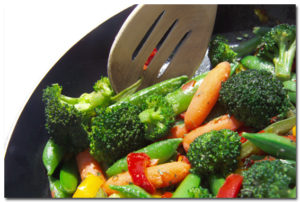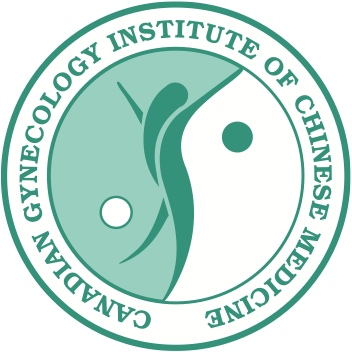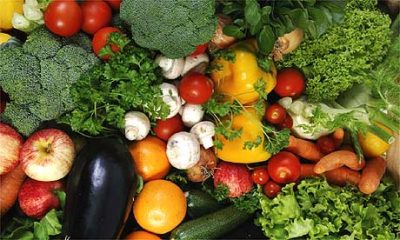Food. Think about it…. We are ALIVE!
What does it take to be alive? We need skin, bones, nerves, muscles, blood, organs, brains, Qi, etc, etc.
How do we make these things? What we EAT makes these things and ensures their proper functioning.
What does this mean? This means… YOU ARE WHAT YOU EAT!
So, the next time you sit down to have a meal, think about what exactly the food you are eating is doing for your body. Is it giving your body the vitamins, minerals, fiber, etc that it needs to be full of life and vitality, or is it bogging your body down with indigestible or difficult-to-digest foods?
In the short term, food that is difficult for your body to process and digest can cause symptoms such as fatigue, lethargy, diarrhea, constipation and emotional changes. In the long term, overloading the body with difficult foods can cause serious diseases such as obesity, body pain, cancer, and inflammatory diseases.
So, What Foods Should I Be Eating?
Basically, eating a variety of mostly fruits and vegetables and some complex carbohydrates, combined with protein – though smaller portions of animal proteins. For the vast majority of people it is important to stay away from greasy and fried foods – unfortunately dairy fits into this category. For those with slow or upset digestion, or those who are easily fatigued, it is very important to make sure the food you eat is warm or cooked. If we put cold foods into our bellies, the body needs to use energy to warm it to a digestible temperature – and then digest it. If the food is already warm, the body does not need to use its own energy, thus preventing unnecessary consumption of energy. For vegetables, cooking them until they turn bright is sufficient. Do you ever get fatigued or tired after meals? Then eating warmer or cooked food is a good idea for you.

That said, Chinese Medicine theory is based on holism, meaning that we take a holistic approach to treatment and giving a blanket-type diet is not reflective of an individually-based balanced diet. It is imperative that people get to know their body types and eat accordingly. Two of the main constitutional categories are thermal nature and strength. I’ve also added damp and dry constitutions since they tend to be relevant in today’s society.
| Type | Characteristics | To Eat | Not to Eat |
| Heat | Person feels hot, likes cool weather and cold drinks, yellow tongue coating, dark urine, red complexion | More liquids, vegetables, grains and legumes | Fats, meats, alcohol, coffee, spices |
| Cold | Person feels cold, dislikes cold weather, overdresses, attracted to warmth and warm foods and drinks | Cooked or baked foods | Raw and cold foods, too much liquid |
| Excess | Robust constitution, tendency for hyperfunction, sensation of fullness, moderate to loud voice, forceful pulse, thick tongue coating | Bitter foods – especially leafy greens, fruits, grains, legumes, more cooling foods | Rich, fatty, sweetened, refined, intoxicating drinks, more warming foods |
| Deficient | Weak constitution, tendency for hypofunction, withdrawn, passive, low energy, weak pulse, little or no tongue coating, soft voice, pale complexion | Sweet, nutritive foods, some animal meats | Bitter foods |
| Deficient Heat
(Yin Def.) |
This is due to a mal-metabolism of fluids causing heat sensation. Person has afternoon fever, night sweats, hot palms or soles, fast and thin pulse, insomnia, cravings for sweets, continual but small thirst or hunger, thin body | Make sure to chew properly, eat complex carbohydrates, soups, stews | Hot spices, alcohol, coffee, tobacco |
| Damp | Easily tired, feels heaviness in the body, edema, water accumulation, excess mucus, tumors, cysts, parasites, yeasts, fungi, excess body weight, thick or greasy tongue coating, weakened digestion | Bitter and aromatic foods | Dairy, meat, eggs, soy products, pineapple, salt, sweeteners |
| Dryness | (Deficient Heat can also cause dryness, look at other signs and symptoms to differentiate) Dry skin, chapped lips, thirst, dry nose and throat, constipation, dry cough | Moistening foods such as dairy, pork, soy products, legumes | Bitter foods |
All of this is well and good, but a little bit vague… here are some specific food recommendations:
- Cold/Cooling Foods for Heat Constitutions: apple, banana, pear, persimmon, cantaloupe, watermelon, tomato, citrus, lettuce, radish, cucumber, celery, button mushroom, asparagus, swiss chard, eggplant, spinach, summer squash, cabbage, bok choy, broccoli, cauliflower, corn, zucchini, soy milk, sprouts, tofu, tempeh, mung beans, alfalfa, millet, barley, wheat, amaranth, kelp, seaweeds, yogurt, crab, clam, peppermint, dandelion greens and root, honeysuckle flowers, nettles, red clover blossoms, lemon balm, white peppercorn, cilantro, marjoram
- Cold/Cooling Foods for Deficient Heat Constitutions: millet, barley, wheat germ, wheat, rice, teff, quinoa, amaranth, seaweeds, micro-algea, tofu, black beans, kidney beans, mung beans, beets, string beans, persimmon, grapes, blackberry, raspberry, mulberry, banana, watermelon. In extreme cases use dairy, egg, clam, abalonem oyster, sardine, duck, beef, or pork, Foods are best prepared in a soup, stew or congee.
- Warm/Warming Foods for Cold Constitutions: few raw and cold foods, use ginger to cook, black beans, lentils, cinnamon, cloves, basil, rosemary, oats, spelt, quinoa, sunflower seeds, sesame seeds, walnut, pinenut, chestnut, fennel, dill, anise, caraway, carob pod, cumin, sweet brown rice, rice, corn, buckwheat, rye, parsnip, parsley, mustard greens, winter squash, sweet potato, kale, onion, leek, chive, garlic, scallion, cherry, dates, anchovy, mussels, trout, chicken, beef, lamb, venison. Very warm foods include hot peppers, cayenne, black pepper.
- Foods for Excess Conditions: sprouts (alfalfa), fruits, vegetables (leafy greens), sea vegetables, micro-algea (blue-green, dunaliella), cereal grains, legumes (lima, aduki, mung), celery, lettuce, asparagus, rye, amaranth, dandelion root, burdock, yellow dock, rhubarb, chamomile, honeysuckle, mushrooms, carrots, radishes, fresh figs, flax-seed oil,
- Foods for Deficiency Conditions: rice, oats, millet, barley, soy, black beans, parsnip, rutabaga, winter squash. For those who tend towards diarrhea: rice, millet, buckwheat. For those who tend towards constipation: black sesame. Otherwise small amounts of dates, yams, molasses, barley malt, rice syrup.
- Foods for Damp Constitutions: lettuce, celery, turnip, kohlrabi, rye, amaranth, aduki bean, wild blue-green micro-alga, asparagus, white pepper, alfalfa, pumpkin, vinegar, papaya, chaparral, pau d’arco, valerian, chamomile.
- Foods for Dry Conditions: tofu, tempeh, soy milk, miso, spinach, asparagus, millet, barley, salt, seaweed, white fungus, apple, tangerine, pinenut, persimmon, peanut, pear, honey, barley malt, cane sugar, whole sugar, oyster, clam, mussel, pork, pork kidney.
Why Are Some Foods in More than One Category?
Some foods have a regulating effect on the body, meaning they influence the body to function better, despite their nature or flavor. It is also important to note, this is a very basic outline and most people fall into multiple conditions or constitutions. Most TCM practitioners have experience with food as medicine and diet, please ask them (or us) for more information. Also, this website gives a more in depth look at how we relate to our food; the ebook is especially worth looking at. Also, the book Healing with Whole Foods by Paul Pitchford gives a very detailed look at how food affects the body, this book is an invaluable resource. Also, more information on food can be found here.
Is Nutrition Different for Children?
According to Chinese Medicine, children up until the age of 7 have a weak digestive system. Principles to keep in mind when feeding children include feeding them a variety of foods and focusing on individual needs, giving them adequate amounts of food and avoiding overeating, serve food at a warmer temperature and avoiding too much cold or raw foods, and eating at regular times and in a pleasant environment.

In a nut shell, eating healthy gives the body more and better energy. This in turn helps with digestion, but also helps in maintaining normal weight, being emotionally balanced, having enough energy, and building a healthy immune system. If you are the type to get sick easily, it is worthwhile to take an in depth look at your diet to ensure you are eating for your body and lifestyle type. They key to Chinese Medicine is always BALANCE.
Happy Eating!
Caroline Prodoehl, D. Ac, TCMP
References
Pitchford, Paul (2002). Healing with Whole Foods: Asian Traditions and Modern Nutrition. North AtlanticBooks. Berkeley,California.
Wang, Yuxiang (2005). Handbook of Pediatric Chinese Dietary Therapy. PublishAmerica, LLLP. Baltiore, Mariland

